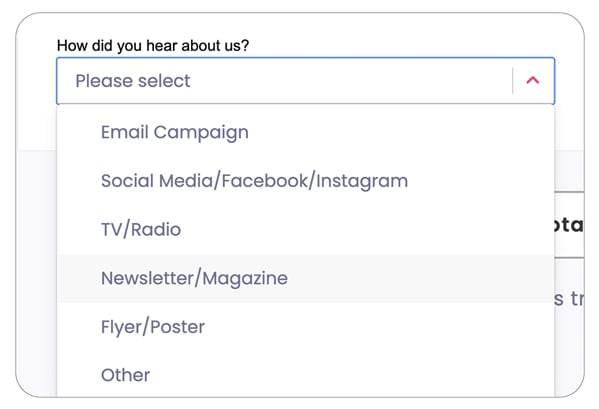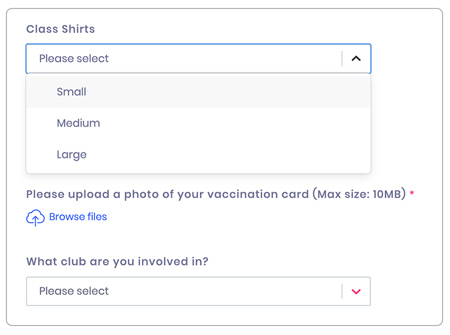Boosting Ticket Sales with Custom Checkout Questions: 6 Effective Strategies
In the competitive world of event planning, understanding your audience and maximizing every interaction is crucial. Custom checkout questions provide a unique opportunity to gather valuable insights, upsell products, and enhance your marketing efforts.
In this blog, we'll explore creative ways to use custom checkout questions to boost ticket sales and improve your overall marketing strategy.
1. Gathering Valuable Insights with Survey Questions
Custom checkout questions can serve as mini-surveys that help you understand your audience better. This data can be invaluable for tailoring your marketing strategies. Use them to ask attendees about their interests and preferences regarding event activities, speakers, or topics. Or collect demographic information to better segment and target your audience.
Examples could include:
- "What are you most looking forward to at this event?"
- "How did you hear about this event?"
- "What type of events do you enjoy the most?"

2. Upselling and Cross-Selling Products
Use custom checkout questions to offer additional products or services, thereby increasing your revenue per transaction.
Additional services could include:
- Merchandise: Offer event-related merchandise such as T-shirts, hats, or souvenirs.
- VIP Upgrades: Provide options for VIP experiences, backstage passes, or premium seating.
Examples could include:
- "Would you like to purchase an event T-shirt for $20?"
- "Upgrade to a VIP pass for exclusive benefits. Interested?"

3. Promoting Future Events
Leverage checkout questions to inform attendees about upcoming events and encourage early sign-ups or interest. For example, you can notify attendees of future events and collect their interest levels using a survey follow-up.
Example questions:
- "Are you interested in receiving information about our upcoming events?"
- "Would you like to secure your spot for our next event at a discounted rate?"
4. Building Your Marketing Database
Custom checkout questions can help you expand your marketing database with high-quality leads and collect further stats on what your customers are interested in. Depending on the survey questions, or if they make additional purchases and add-ons.
5. Segmenting Your Audience
Use the data collected from checkout questions to segment your audience for more personalized and effective marketing campaigns.
- Interest-Based Segmentation: Segment attendees based on their interests and preferences.
- Behavioral Segmentation: Group attendees by their responses to upsell questions or feedback.
Example questions to help:
- "Which topics are you most interested in? (e.g., technology, health, entertainment)"
- "How often do you attend events like this?"
6. Enhancing the Event Experience
Custom checkout questions can help you personalize the event experience for each attendee, making them feel valued and increasing their likelihood of returning.
- Personal Preferences: Collect information about dietary restrictions, accessibility needs, or special requests.
- Custom Greetings: Use their responses to create personalized greetings or welcome messages at the event.
For example:
- "Do you have any dietary restrictions we should be aware of?"
- "Is there anything we can do to make your experience more enjoyable?"
|
Create Custom Checkout Questions Survey your guests, collect information for |
Custom checkout questions are a powerful tool that can significantly enhance your marketing efforts, improve event experiences, and boost ticket sales. You can create a more engaged and satisfied attendee base by gathering valuable insights, upselling products, promoting future events, collecting feedback, building your marketing database, segmenting your audience, and personalizing the event experience. Start incorporating these strategies into your event planning today to see the benefits.






